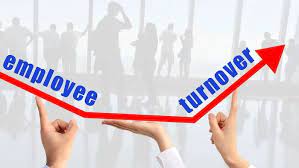Employee turnover is a common challenge in the restaurant industry. However, unexpected or sudden employee turnover can be even more disruptive to your restaurant’s operations and overall success.
In this article, we will explore effective strategies for tackling unexpected employee turnover in the restaurant industry. From proactive recruitment and onboarding practices to creating a positive work culture and cross-training, we’ll cover everything you need to know to navigate unexpected turnover and ensure the continued success of your restaurant. So, let’s dive in and discover how to tackle unexpected employee turnover head-on!
Develop a Proactive Recruitment Strategy:
One of the best ways to mitigate the effects of unexpected turnover is to have a proactive recruitment strategy in place. This involves continuously sourcing and building a talent pipeline, even when you don’t have immediate openings. By proactively seeking out potential candidates, you’ll have a pool of qualified individuals to consider when unexpected turnover occurs.
- Utilise online job boards, social media platforms, and industry-specific networking events to connect with potential candidates.
- Build relationships with local culinary schools, hospitality programs, and professional associations to tap into emerging talent.
- Encourage employee referrals by offering incentives to your current staff for referring qualified candidates.
Streamline the Onboarding Process:
Efficient and effective onboarding is essential for quickly integrating new employees into your restaurant’s operations. A well-structured onboarding process ensures that new hires feel supported, informed, and confident in their roles. This can help mitigate the impact of unexpected turnover by minimising disruption and ensuring a smooth transition for new employees.
- Develop a comprehensive onboarding program that includes training on standard operating procedures, job responsibilities, and safety protocols.
- Assign a mentor or buddy to new hires who can provide guidance and support during their initial weeks on the job.
- Provide clear expectations, goals, and performance metrics to help new employees understand their roles and feel motivated to succeed.
Foster a Positive Work Culture:
Creating a positive work culture is essential for employee engagement and retention. When employees feel valued, supported, and connected to their workplace, they are more likely to stay committed even when unexpected turnover occurs. Building a positive work culture starts from the top and requires ongoing effort and attention.
- Foster open and transparent communication by encouraging regular team meetings, feedback sessions, and suggestion boxes.
- Recognize and reward employees for their contributions, whether through verbal appreciation, incentives, or employee recognition programs.
- Encourage teamwork and collaboration by promoting a supportive and inclusive environment where employees feel comfortable sharing ideas and working together.
Cross-Train Employees:
Cross-training your employees can be a valuable strategy for mitigating the effects of unexpected turnover. By providing opportunities for employees to learn and perform different roles within the restaurant, you create a more versatile and adaptable workforce. When unexpected turnover occurs, you can temporarily shift responsibilities and fill gaps more easily.
- Identify key areas where cross-training can be beneficial, such as front-of-house and back-of-house operations.
- Develop a cross-training program that outlines the skills and knowledge required for each role and provides opportunities for hands-on experience and shadowing.
- Regularly assess and update the cross-training program to ensure it aligns with the evolving needs of your restaurant.
Offer Competitive Compensation and Benefits:
Competitive compensation and benefits are crucial for attracting and retaining top talent. While unexpected turnover may still occur, offering competitive packages can help mitigate its frequency. When employees feel fairly compensated and rewarded for their efforts, they are more likely to stay committed to their roles.
- Regularly review and benchmark your wages and benefits against industry standards to ensure competitiveness.
- Consider offering additional perks, such as healthcare benefits, retirement plans, and employee discounts, to enhance the overall package.
- Implement a performance-based compensation system that rewards employees for their achievements and contributions.
Implement a Restaurant Reservation Management System:
A restaurant reservation management system can play a crucial role in mitigating the effects of unexpected turnover, especially in the front-of-house operations. By utilising a restaurant management system, you can optimise seating arrangements, streamline the reservation process, and enhance the overall customer experience.
- Implement a robust reservation management system that allows for easy table management, efficient guest seating, and accurate reservation tracking.
- Utilise features such as waitlist management, automated confirmations, and customer database integration to streamline operations.
- Leverage the data and analytics provided by the reservation management system to make informed decisions and identify trends in customer behaviour.
Conclusion:
While unexpected employee turnover can pose challenges for any restaurant, implementing proactive strategies can help mitigate its effects. By developing a proactive recruitment strategy, streamlining the onboarding process, fostering a positive work culture, cross-training employees, offering competitive compensation and benefits, and implementing a digital restaurant diary, you can navigate unexpected turnover more effectively.
Remember that building a strong team and creating a supportive work environment are ongoing efforts that require attention and dedication. By taking a proactive approach, you can tackle unexpected turnover head-on and ensure the continued success of your restaurant.
















